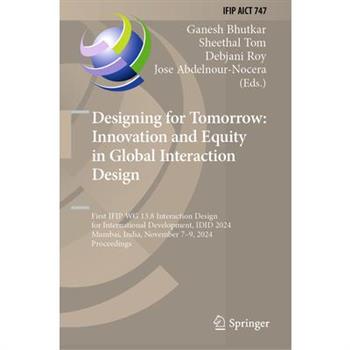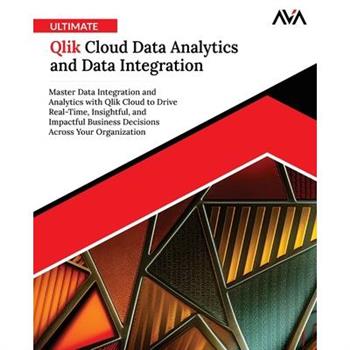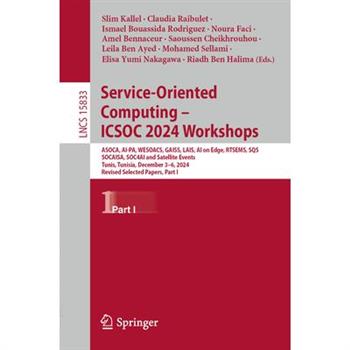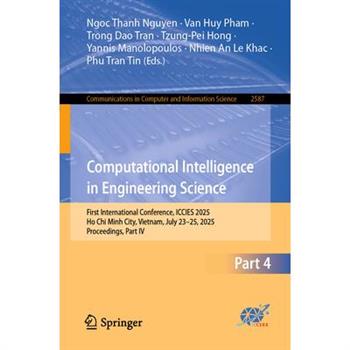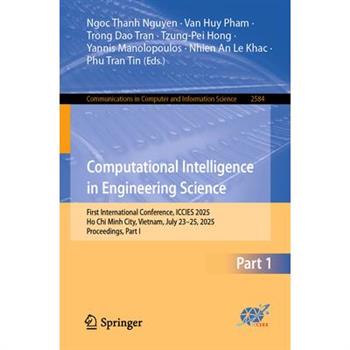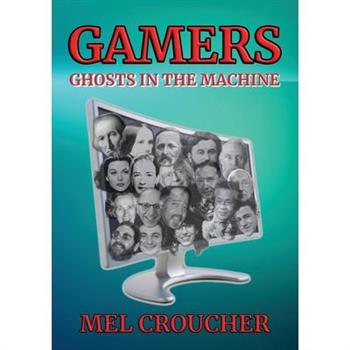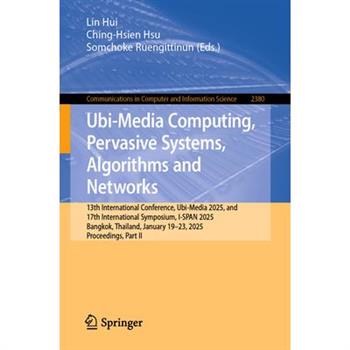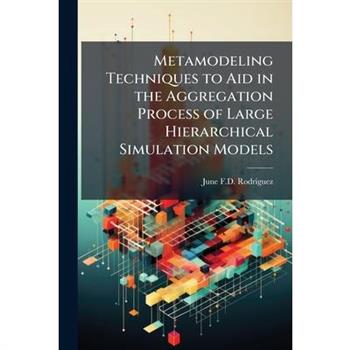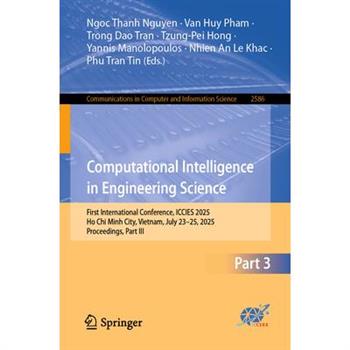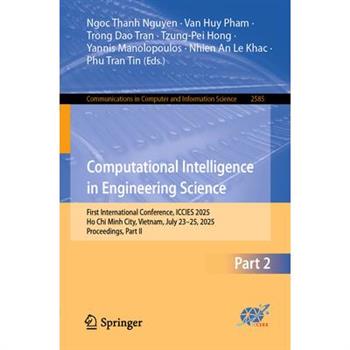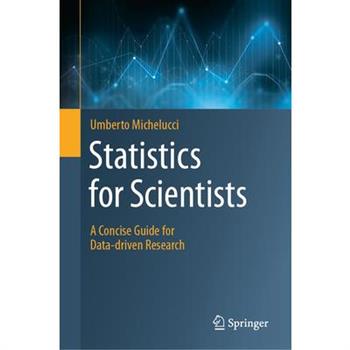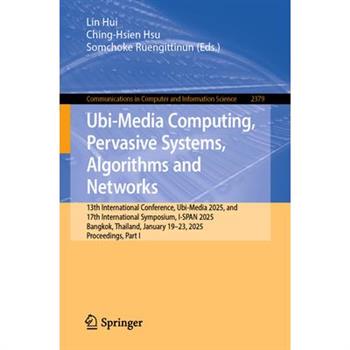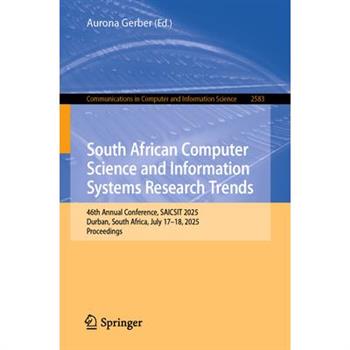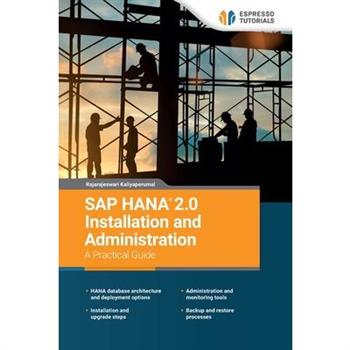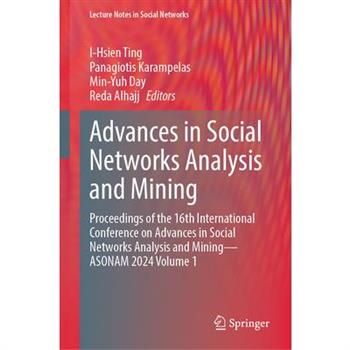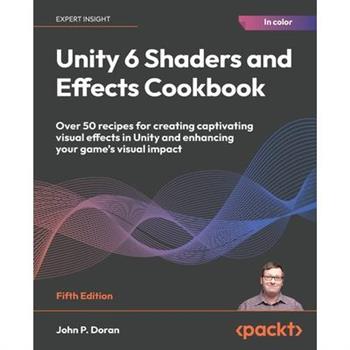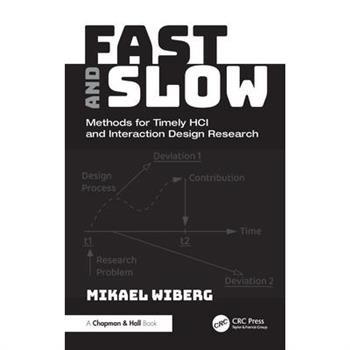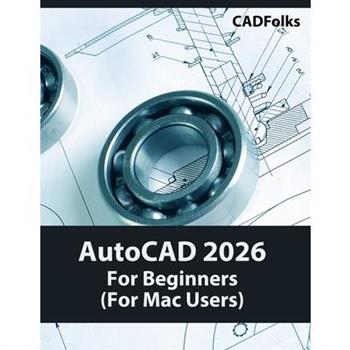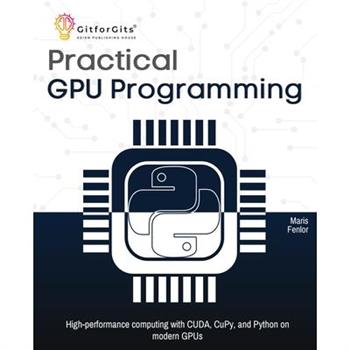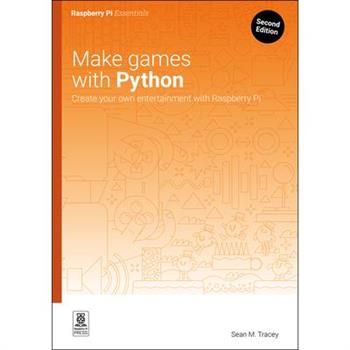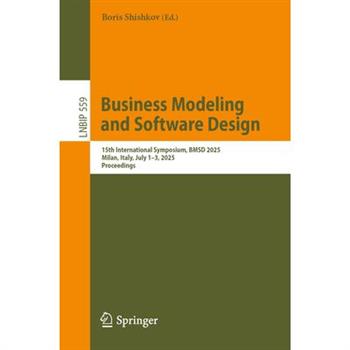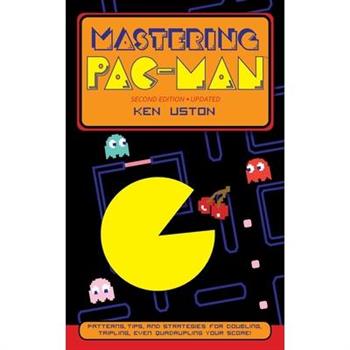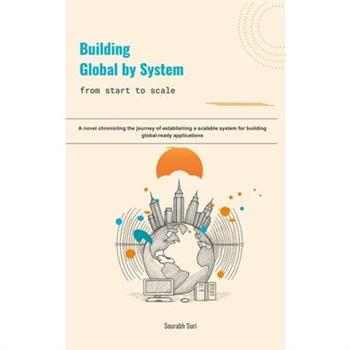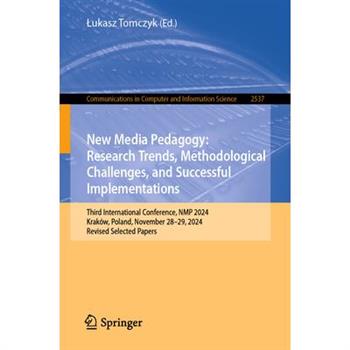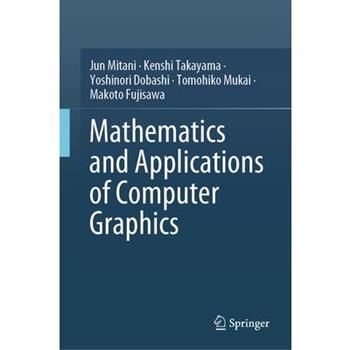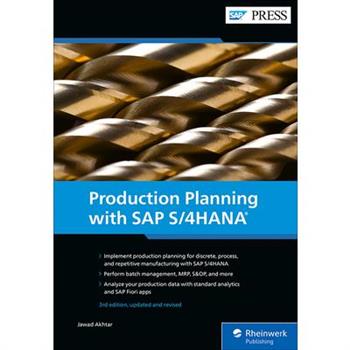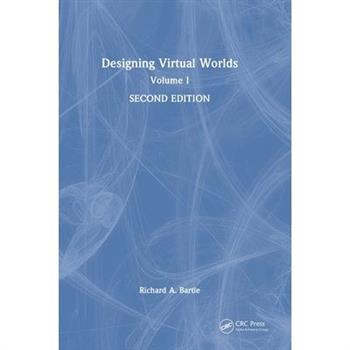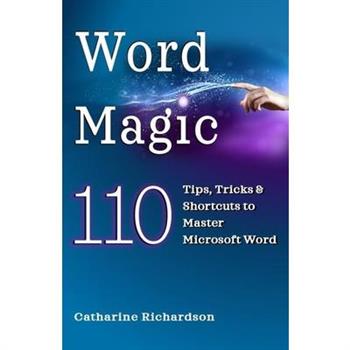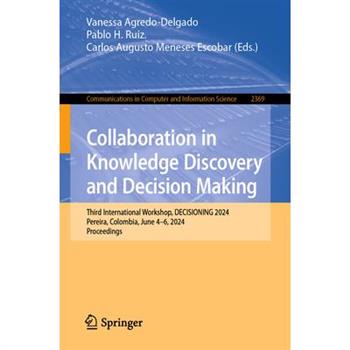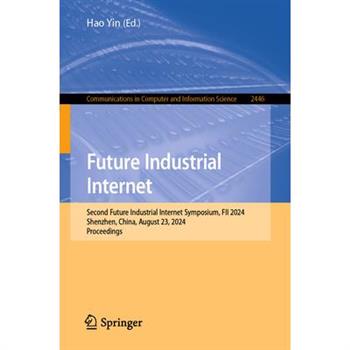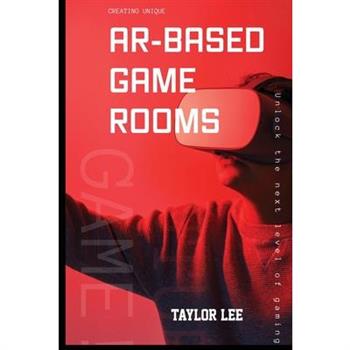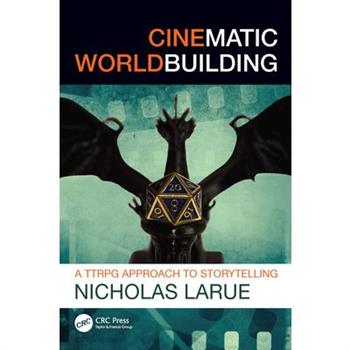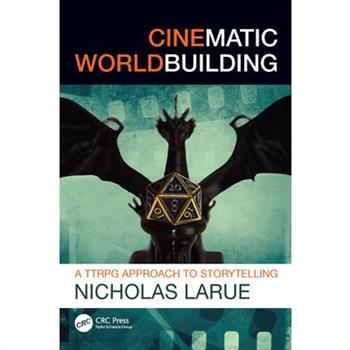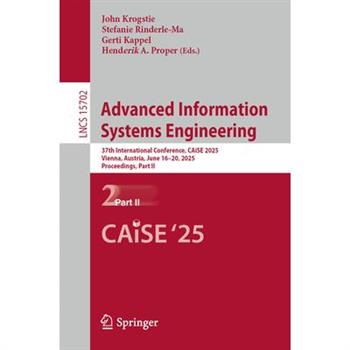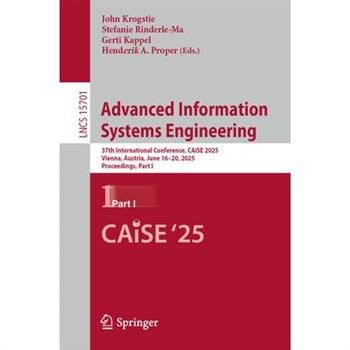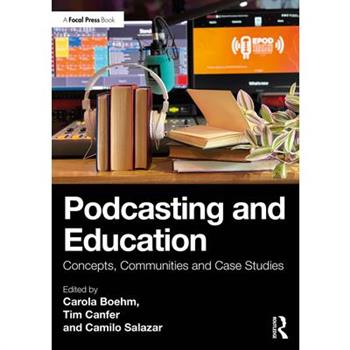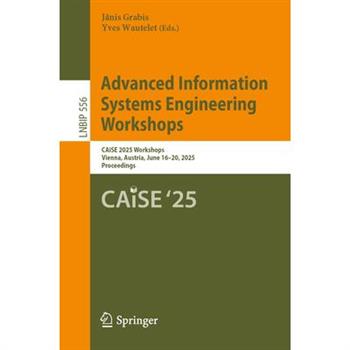Designing for Tomorrow: Innovation and Equity in Global Interaction Design
This book constitutes the refereed proceedings of the First IFIP Working Group 13.8 Interaction Design for International Development, IDID 2024, held in Mumbai, India, during November 7-9, 2024. The 14 full papers included in this book were carefully reviewed and selected from 17 submissions. The aim of this working group is to pursue research and promote the discipline of Human-Computer Interaction (HCI) in an international context. It also provides a platform, where both emerging and experienced researchers from academia and industry can converge to exchange their latest findings in the ever-evolving realm of HCI and International Development.
Ultimate Qlik Cloud Data Analytics and Data Integration
Service-Oriented Computing - Icsoc 2024 Workshops
This two-volume set volume constitutes the papers of ten workshops which were held in conjunction with the 22nd International Conference on Service-Oriented Computing, ICSOC 2024. The conference took place in Tunis, Tunisia, during December 3-6, 2024. The 58 full papers and 3 short papers presented in this book were carefully reviewed and selected from 109 submissions. ICSOC 2024 presents the following ten workshops: - 9th International Workshop on Adaptive Service-oriented and Cloud Applications (ASOCA)- 5th International Workshop on AI-enabled Process Automation (AI-PA)- 20th International Workshop on Engineering Service-Oriented Applications and Cloud Services (WESOACS)- 1st International Workshop on Generative AI as a Software Service (GAISS)- 1st International Workshop on Lightweight AI-based Services (LAIS)- 1st International Workshop on Optimising AI Models Using Local Data on Resource-Constrained Edge Devices - Training \& Inference (AI on Edge)- 1st International Workshop on RealTime Service oriented and EMbedded Systems (RTSEMS)- 2nd International Workshop on Services and Quantum Software (SQS)- 1st International Workshop on Service-Oriented Computing, AI, and IoT for Smart Applications (SOCAISA)- 1st International Workshop on Service-Oriented Computing for AI Applications (SOC4AI).
Computational Intelligence in Engineering Science
This four-volume set constitutes the refereed proceedings of the First International Conference on on Computational Intelligence in Engineering Science, ICCIES 2025, in Ho Chi Minh City, Vietnam, during July 23-25, 2025. The 115 full papers presented in these proceedings were carefully reviewed and selected from 210 submissions. The papers are organized in the following topical sections: Part I: Machine Learning; Wireless Networks (6G) Part II: Computer Vision; Natural Language Processing Part III: Intelligent Systems; Internet of Things Part IV: Machine Learning; Control Systems
Computational Intelligence in Engineering Science
This four-volume set constitutes the refereed proceedings of the First International Conference on on Computational Intelligence in Engineering Science, ICCIES 2025, in Ho Chi Minh City, Vietnam, during July 23-25, 2025. The 115 full papers presented in these proceedings were carefully reviewed and selected from 210 submissions. The papers are organized in the following topical sections: Part I: Machine Learning; Wireless Networks (6G) Part II: Computer Vision; Natural Language Processing Part III: Intelligent Systems; Internet of Things Part IV: Machine Learning; Control Systems
Gamers
The twenty ghosts in the machine who created the biggest entertainment industry the world has ever known.This book tells their remarkable stories in their own words for the very first time, embracing genius, love, loss, addiction, murder, suicide, and a whole lot of fun.Written by the founder of the British computer games industry.
Ubi-Media Computing, Pervasive Systems, Algorithms and Networks
This 2-volume set constitutes the refereed proceedings of the 17th International Symposium on Pervasive Systems, Algorithms and Networks, I-SPAN 2025 and 13th International Conference on Ubi-Media Computing, Ubi-Media 2025 held in Bangkok, Thailand, in January 19-23, 2025. The 36 full papers and 16 short papers presented in this book were carefully reviewed and selected from 95 submissions. They are categorized into the following topical sections: Part 1: Edge Computing and IoT Application, Optimization and Deep Learning Application, System and Network Application, Cybersecurity Technique and Application, Machine Learning on Multimedia and Applications Part 2: Prediction Methods and Application, Data Processing and Detection Methods, Edge Computing and IoT Application, Multimedia Networks, System and Applications, Machine Learning on Intelligent Application Systems
Metamodeling Techniques to Aid in the Aggregation Process of Large Hierarchical Simulation Models
This research investigates how aggregation is currently conducted for simulation of large systems. The purpose is to examine how to achieve suitable aggregation in the simulation of large systems. More specifically, investigating how to accurately aggregate hierarchical lower-level (higher resolution) models into the next higher-level in order to reduce the complexity of the overall simulation model. The focus is on the exploration of the different aggregation techniques for hierarchical lower-level (higher resolution) models into the next higher-level. We develop aggregation procedures between two simulation levels (e.g., aggregation of engagement level models into a mission level model) to address how much and what information needs to pass from the highresolution to the low-resolution model in order to preserve statistical fidelity. We present a mathematical representation of the simulation model based on network theory and procedures for simulation aggregation that are logical and executable.This work has been selected by scholars as being culturally important, and is part of the knowledge base of civilization as we know it. This work was reproduced from the original artifact, and remains as true to the original work as possible. Therefore, you will see the original copyright references, library stamps (as most of these works have been housed in our most important libraries around the world), and other notations in the work.This work is in the public domain in the United States of America, and possibly other nations. Within the United States, you may freely copy and distribute this work, as no entity (individual or corporate) has a copyright on the body of the work.As a reproduction of a historical artifact, this work may contain missing or blurred pages, poor pictures, errant marks, etc. Scholars believe, and we concur, that this work is important enough to be preserved, reproduced, and made generally available to the public. We appreciate your support of the preservation process, and thank you for being an important part of keeping this knowledge alive and relevant.
Autodesk Inventor 2026 Basics Tutorial (COLORED)
Master Autodesk Inventor 2026 - A Step-by-Step Tutorial for Beginners and Intermediate Users"Autodesk Inventor 2026 Basics Tutorial" is your hands-on guide to building a strong foundation in Autodesk Inventor 2026. Whether you're a student, instructor, or working professional, this book offers a practical, easy-to-follow approach to learning one of the industry's most widely used design tools.What's Inside: 11 structured chapters packed with step-by-step tutorials, real-world exercises, and practical projectsFocused coverage of core tools, workflows, and best practices tailored for Autodesk Inventor 2026Designed to build skills progressively, making it ideal for both self-paced learners and classroom useWhat You'll Learn: Confidently navigate the Autodesk Inventor 2026 interface and key toolsCreate and modify 2D sketches and 3D solid models with easeBuild functional assemblies and generate professional drawingsApply GD&T concepts to communicate design intent clearlyUse Frame Generator to design and customize structural framesCreate dynamic presentations, animations, and exploded viewsStreamline your workflow by customizing Inventor for your needsWho Should Use This Book: Engineering and design students looking to build job-ready skillsEducators and trainers teaching Autodesk Inventor 2026Professionals in manufacturing, mechanical design, or product developmentHobbyists and makers interested in mastering 3D design toolsWhy This Book Stands Out: No prior experience required-built for beginners but rich enough for intermediate usersUpdated for Autodesk Inventor 2026, reflecting the latest features and interface changesClear explanations and hands-on practice help reinforce learning and build confidenceProven layout and structure used in classrooms and professional settings alikeTake the guesswork out of learning Inventor. Whether you're starting from scratch or upgrading your skills for the 2026 release, this book is your step-by-step companion to mastering Autodesk Inventor.
Computational Intelligence in Engineering Science
This four-volume set constitutes the refereed proceedings of the First International Conference on on Computational Intelligence in Engineering Science, ICCIES 2025, in Ho Chi Minh City, Vietnam, during July 23-25, 2025. The 115 full papers presented in these proceedings were carefully reviewed and selected from 210 submissions. The papers are organized in the following topical sections: Part I: Machine Learning; Wireless Networks (6G) Part II: Computer Vision; Natural Language Processing Part III: Intelligent Systems; Internet of Things Part IV: Machine Learning; Control Systems
Computational Intelligence in Engineering Science
This four-volume set constitutes the refereed proceedings of the First International Conference on on Computational Intelligence in Engineering Science, ICCIES 2025, in Ho Chi Minh City, Vietnam, during July 23-25, 2025. The 115 full papers presented in these proceedings were carefully reviewed and selected from 210 submissions. The papers are organized in the following topical sections: Part I: Machine Learning; Wireless Networks (6G) Part II: Computer Vision; Natural Language Processing Part III: Intelligent Systems; Internet of Things Part IV: Machine Learning; Control Systems
Ubi-Media Computing, Pervasive Systems, Algorithms and Networks
This 2-volume set constitutes the refereed proceedings of the 17th International Symposium on Pervasive Systems, Algorithms and Networks, I-SPAN 2025 and 13th International Conference on Ubi-Media Computing, Ubi-Media 2025 held in Bangkok, Thailand, in January 19-23, 2025. The 36 full papers and 16 short papers presented in this book were carefully reviewed and selected from 95 submissions. They are categorized into the following topical sections: Part 1: Edge Computing and IoT Application, Optimization and Deep Learning Application, System and Network Application, Cybersecurity Technique and Application, Machine Learning on Multimedia and Applications Part 2: Prediction Methods and Application, Data Processing and Detection Methods, Edge Computing and IoT Application, Multimedia Networks, System and Applications, Machine Learning on Intelligent Application Systems
South African Computer Science and Information Systems Research Trends
This book contains a selection of the best papers of the 46th Annual Conference of the South AfricanInstitute of Computer Scientists and Information Technologists, SAICSIT 2025, held in Durban, South Africa, during July 17-18, 2025. The 19 full papers included in this book were carefully reviewed and selected from 85 submissions.They were focused on following topical sections: Information Systems and Computer Science.
SAP HANA 2.0 Installation and Administration A Practical Guide
Are you thinking of becoming an SAP HANA Administrator with strong foundational knowledge? Would you like to learn the basics or get your basics right? Then look no further. This expertly written guide walks readers through the fundamentals required to perform day-to-day operations, database sizing, installation, upgrades, and restore and recover activities as a HANA database administrator. Take a closer look at the architecture of the HANA database and explore the various deployment options. Learn how to install and upgrade HANA databases. Discover the tools available for administration and monitoring activities, including HANA Studio, HANA command line and the HANA Cockpit. Learn about essential database administration tasks such as system views, monitoring, and table partitioning. Examine security considerations and walk step by step through different types of backup and restore processes, including handling of encrypted backups, HANA System Replication and tenant copy. Learn how to efficiently troubleshoot HANA database issues, with expert guidance and practical advice.HANA database architecture and deployment optionsInstallation and upgrade stepsAdministration and monitoring toolsBackup and restore processes
Unity 6 Shaders and Effects Cookbook - Fifth Edition
Overcome challenges head-on in Unity 6 shader creation with the help of expert tips, practical solutions, and cutting-edge techniques from best-selling author John DoranKey Features: - Explore Shader Graph to develop expertise in post-processing and advanced shading- Unlock shortcuts to achieve AAA shader quality without complex algorithms- Become proficient in Unity's latest tools, including VFX Graph and Unity Muse- Purchase of the print or Kindle book includes a free PDF eBookBook Description: Shaders enable game developers to craft visually stunning experiences, but their complexity and mathematical and technical challenges make it hard to achieve the desired level of realism. Written by a top-selling author with extensive hands-on expertise in game development, this latest edition is your indispensable guide to mastering the art of shaders within this evolving landscape.Through meticulously curated recipes, this book takes a practical approach to equip you with the knowledge and tools necessary to elevate your game visuals to unmatched sophistication. In this updated edition, you'll gain invaluable insights into leveraging Unity's latest tools, including Unity Muse for advanced AI-powered texture creation. From fully grasping Shader Graph to harnessing the power of vectors and textures, this Unity cookbook covers all the aspects of shader development without the need for elaborate mathematical calculations. You'll also discover practical techniques for achieving stunning visual effects with ease when creating 2D or 3D elements.What You Will Learn: - Understand the principles of shaders, along with how to work in Shader Graph- Harness URP and HDRP packages for efficient shader creation- Enhance game visuals with modern shader techniques- Optimize shaders for performance and aesthetics- Master the math and algorithms behind the commonly used lighting models- Transform your game's atmosphere with the Post Processing Stack- Develop sophisticated shader effects by leveraging fragment shaders and grab-pass techniquesWho this book is for: This book is for game developers looking to elevate their shader expertise and enhance game visuals using Unity 6. Game programmers, technical artists, and aspiring game developers eager to master shader creation with Shader Graph will find this book very useful. A solid understanding of Unity is required to get the most out of this book.Table of Contents- Using Post-Processing with URP- Creating Your First Shader with Shader Graph- Working with Surfaces- Working with Texture Mapping- Enhancing Realism: Unity Muse and Physically Based Rendering- Using Vertex Functions- Using Grab Passes - Optimizing Shaders- Creating Screen Effects with Fullscreen Shaders- Gameplay and Screen Effects- Understanding Lighting Models- Developing Advanced Shading Techniques- Utilizing the HDRP
Fast and Slow
Drawing inspiration from fast and slow thinking, design thinking and our everchanging world, this book contrasts "fast" approaches-such as "quick-and-dirty ethnography, prototyping, and AI-driven automation-with "slow" methodologies that emphasize ethnographic studies, longitudinal research, and participatory design.
Creo Parametric 12.0 Black Book
Creo Parametric 12.0 Black Book: The Complete Guide for 3D CAD Modeling, Simulation, Sheetmetal, Surface Design, and 3D Printing with PTC CreoCreo Parametric 12.0 Black Book is the most comprehensive resource for mastering 3D CAD modeling, product design, and simulation using PTC's flagship software. Whether you are a mechanical engineer, CAD designer, student, or educator, this book delivers everything you need to become proficient in Creo Parametric-from basic sketching to advanced topics like sheet metal design, surface modeling, mechanism simulation, Model-Based Definition (MBD), and 3D printing workflows.This 10th edition has been meticulously updated for Creo Parametric 12.0, including coverage of the latest enhancements such as composite design, new UI improvements, and advanced simulation capabilities.Inside this practical and richly illustrated guide, you will learn how to: Navigate Creo Parametric's Interface Efficiently: Master ribbons, toolbars, file management, and keyboard shortcuts to speed up your design workflow.Create Detailed 2D Sketches and Constraints: Use powerful sketch tools, dimensions, and geometric constraints to build robust 3D features.Develop Complex 3D Models: Explore extrusion, revolved features, sweeps, blends, helical sweeps, swept blends, and more for high-level product design.Perform Advanced Surface Modeling: Utilize boundary blend, surface trimming, merging, offsetting, and solidifying techniques to create sophisticated surface geometries.Design Sheetmetal Components: Learn about bends, flanges, rip tools, corner reliefs, forming tools, and flat pattern development for manufacturing-ready sheetmetal parts.Assemble and Simulate Mechanisms: Gain hands-on skills in advanced assembly techniques, constraints, exploded views, and motion analysis using Creo Mechanism.Apply Model-Based Definition (MBD): Add GD&T annotations directly onto 3D models for manufacturing, and generate 3D PDFs.Prepare Models for 3D Printing: Understand part preparation, lattice creation, and the entire 3D printing process within Creo Parametric.Conduct Simulation Studies: Perform structural, thermal, modal, and fluid simulations directly within Creo, analysing real-world engineering problems.Key Features: Over 1,590 illustrations and screenshots for visual learningReal-world tutorials and projects to build practical skillsCovers new features in Creo Parametric 12.0, including composite modeling and UI updatesIdeal for self-learning, classroom instruction, and professional referenceIncludes practical exercises and self-assessment at the end of each chapterSpecial faculty resources for educators
Creo Parametric 12.0 Black Book
Creo Parametric 12.0 Black Book: The Complete Guide for 3D CAD Modeling, Simulation, Sheetmetal, Surface Design, and 3D Printing with PTC CreoCreo Parametric 12.0 Black Book is the most comprehensive resource for mastering 3D CAD modeling, product design, and simulation using PTC's flagship software. Whether you are a mechanical engineer, CAD designer, student, or educator, this book delivers everything you need to become proficient in Creo Parametric-from basic sketching to advanced topics like sheet metal design, surface modeling, mechanism simulation, Model-Based Definition (MBD), and 3D printing workflows.This 10th edition has been meticulously updated for Creo Parametric 12.0, including coverage of the latest enhancements such as composite design, new UI improvements, and advanced simulation capabilities.Inside this practical and richly illustrated guide, you will learn how to: Navigate Creo Parametric's Interface Efficiently: Master ribbons, toolbars, file management, and keyboard shortcuts to speed up your design workflow.Create Detailed 2D Sketches and Constraints: Use powerful sketch tools, dimensions, and geometric constraints to build robust 3D features.Develop Complex 3D Models: Explore extrusion, revolved features, sweeps, blends, helical sweeps, swept blends, and more for high-level product design.Perform Advanced Surface Modeling: Utilize boundary blend, surface trimming, merging, offsetting, and solidifying techniques to create sophisticated surface geometries.Design Sheetmetal Components: Learn about bends, flanges, rip tools, corner reliefs, forming tools, and flat pattern development for manufacturing-ready sheetmetal parts.Assemble and Simulate Mechanisms: Gain hands-on skills in advanced assembly techniques, constraints, exploded views, and motion analysis using Creo Mechanism.Apply Model-Based Definition (MBD): Add GD&T annotations directly onto 3D models for manufacturing, and generate 3D PDFs.Prepare Models for 3D Printing: Understand part preparation, lattice creation, and the entire 3D printing process within Creo Parametric.Conduct Simulation Studies: Perform structural, thermal, modal, and fluid simulations directly within Creo, analysing real-world engineering problems.Key Features: Over 1,590 illustrations and screenshots for visual learningReal-world tutorials and projects to build practical skillsCovers new features in Creo Parametric 12.0, including composite modeling and UI updatesIdeal for self-learning, classroom instruction, and professional referenceIncludes practical exercises and self-assessment at the end of each chapterSpecial faculty resources for educators
Creo Manufacturing 12.0 Black Book
Creo Manufacturing 12.0 Black Book - The Complete Guide to Creo NC, Expert Machinist, and Multi-Axis MachiningUnlock the full potential of Creo Manufacturing 12.0 with the Creo Manufacturing 12.0 Black Book, your ultimate companion for mastering the powerful tools and workflows of PTC Creo. Whether you are an experienced professional, a CNC machinist, or a student diving into the world of Computer-Aided Manufacturing (CAM), this book provides comprehensive, step-by-step coverage of the key modules of Creo Manufacturing, including Expert Machinist, NC Assembly, CMM, and essential operations in Creo NC Sheetmetal.From fundamental concepts like roughing and finishing processes, machine types, and NC machine programming, to advanced topics such as 3-axis, 4-axis, and 5-axis machining, multi-axis toolpath strategies, and Creo NC Sheetmetal design, this Black Book equips you with practical skills for real-world manufacturing challenges. Learn how to configure tooling, create machining sequences, manage post-processors, generate cutter location (CL) data, and produce precise NC code for a range of manufacturing equipment.Key Features: Covers Expert Machinist and NC Assembly: Learn to create NC programs for complex jobs using Expert Machinist's full capabilities, including turning, milling, drilling, and multi-axis machining.Detailed Tool Libraries: Explore comprehensive sections on milling tools, drilling tools, threading tools, and specialized cutters with real-world use cases and parameter settings.Master Multi-Axis Machining: Gain in-depth knowledge of advanced operations like 5-axis milling, HSM toolpaths, geodesic finishing, undercut machining, and adaptive toolpaths in Creo Manufacturing.Highly Illustrated Learning: Featuring over 850 illustrations, screenshots, and practical examples, making it easy to follow even complex manufacturing operations.Practical Tutorials and Exercises: Every chapter concludes with hands-on tutorials and self-assessment exercises that reinforce your understanding through real-world projects.Ideal for Professionals and Students: Whether you are a machinist, CAM programmer, manufacturing engineer, or an instructor teaching CAD/CAM, this book is designed to help you become a Creo Manufacturing expert.Updated for Creo Manufacturing 12.0: Includes new features and enhancements introduced in Creo 12.0, ensuring you are up-to-date with the latest tools and workflows.Perfect for: CNC programmers and machinists seeking to master Creo Expert MachinistMechanical and manufacturing engineers working with Creo NC SheetmetalCAM professionals designing complex parts and assembliesEngineering educators teaching CAM and CNC machining using CreoStudents preparing for careers in advanced manufacturing and precision engineering
Creo Manufacturing 12.0 Black Book
Creo Manufacturing 12.0 Black Book - The Complete Guide to Creo NC, Expert Machinist, and Multi-Axis MachiningUnlock the full potential of Creo Manufacturing 12.0 with the Creo Manufacturing 12.0 Black Book, your ultimate companion for mastering the powerful tools and workflows of PTC Creo. Whether you are an experienced professional, a CNC machinist, or a student diving into the world of Computer-Aided Manufacturing (CAM), this book provides comprehensive, step-by-step coverage of the key modules of Creo Manufacturing, including Expert Machinist, NC Assembly, CMM, and essential operations in Creo NC Sheetmetal.From fundamental concepts like roughing and finishing processes, machine types, and NC machine programming, to advanced topics such as 3-axis, 4-axis, and 5-axis machining, multi-axis toolpath strategies, and Creo NC Sheetmetal design, this Black Book equips you with practical skills for real-world manufacturing challenges. Learn how to configure tooling, create machining sequences, manage post-processors, generate cutter location (CL) data, and produce precise NC code for a range of manufacturing equipment.Key Features: Covers Expert Machinist and NC Assembly: Learn to create NC programs for complex jobs using Expert Machinist's full capabilities, including turning, milling, drilling, and multi-axis machining.Detailed Tool Libraries: Explore comprehensive sections on milling tools, drilling tools, threading tools, and specialized cutters with real-world use cases and parameter settings.Master Multi-Axis Machining: Gain in-depth knowledge of advanced operations like 5-axis milling, HSM toolpaths, geodesic finishing, undercut machining, and adaptive toolpaths in Creo Manufacturing.Highly Illustrated Learning: Featuring over 850 illustrations, screenshots, and practical examples, making it easy to follow even complex manufacturing operations.Practical Tutorials and Exercises: Every chapter concludes with hands-on tutorials and self-assessment exercises that reinforce your understanding through real-world projects.Ideal for Professionals and Students: Whether you are a machinist, CAM programmer, manufacturing engineer, or an instructor teaching CAD/CAM, this book is designed to help you become a Creo Manufacturing expert.Updated for Creo Manufacturing 12.0: Includes new features and enhancements introduced in Creo 12.0, ensuring you are up-to-date with the latest tools and workflows.Perfect for: CNC programmers and machinists seeking to master Creo Expert MachinistMechanical and manufacturing engineers working with Creo NC SheetmetalCAM professionals designing complex parts and assembliesEngineering educators teaching CAM and CNC machining using CreoStudents preparing for careers in advanced manufacturing and precision engineering
AutoCAD 2026 For Beginners (For Mac Users)
Master AutoCAD 2026 for Mac: Your Essential GuideNew to AutoCAD or upgrading skills? Learn to create precise 2D drawings and 3D models with step-by-step lessons.What You'll Learn: - Core drawing, editing & parametric tools- Multi-view drawings with dimensions- 3D modeling techniques- Architectural plans: floors, stairs, roofs- Templates & plottingWhy This Guide?- Clear & Sequential: Beginner-friendly instructions- Project-Based: Real-world examples- Complete Coverage: Basics to advanced tools in 14 chapters- For All Users: Students, hobbyists, and professionalsKey Features: - Illustrated step-by-step tutorials- Practical project exercises- Mac-specific AutoCAD 2026 focusStart Designing Today!"AutoCAD 2026 For Beginners (Mac Users)" builds skills for careers, projects, or hobbies. Order now to create professional designs confidently!Order Your Copy Today!
Practical GPU Programming
If you're a Python pro looking to get the most out of your code with GPUs, then Practical GPU Programming is the right book for you. This book will walk you through the basics of GPU architectures, show you hands-on parallel programming techniques, and give you the know-how to confidently speed up real workloads in data processing, analytics, and engineering.The first thing you'll do is set up the environment, install CUDA, and get a handle on using Python libraries like PyCUDA and CuPy. You'll then dive into memory management, kernel execution, and parallel patterns like reductions and histogram computations. Then, we'll dive into sorting and search techniques, but with a focus on how GPU acceleration transforms business data processing. We'll also put a strong emphasis on linear algebra to show you how to supercharge classic vector and matrix operations with cuBLAS and CuPy. Plus, with batched computations, efficient broadcasting, custom kernels, and mixed-library workflows, you can tackle both standard and advanced problems with ease.Throughout, we evaluate numerical accuracy and performance side by side, so you can understand both the strengths and limitations of GPU-based solutions. The book covers nearly every essential skill and modern toolkit for practical GPU programming, but it's not going to turn you into a master overnight.Key LearningsBoost processing speed and efficiency for data-intensive tasks.Use CuPy and PyCUDA to write and execute custom CUDA kernels.Maximize GPU occupancy and throughput efficiency by using optimal thread block and grid configuration.Reduce global memory bottlenecks in kernels by using shared memory and coalesced access patterns.Perform dynamic kernel compilation to ensure tailored performance.Use CuPy to carry out custom, high-speed elementwise GPU operations and expressions.Implement bitonic and radix sort algorithms for large or batch integer datasets.Execute parallel linear search kernels to detect patterns rapidly.Scale matrix operations using Batched GEMM and high-level cuBLAS routines.Table of ContentIntroduction to GPU FundamentalsSetting up GPU Programming EnvironmentBasic Data Transfers and Memory TypesSimple Parallel PatternsIntroduction to Kernel OptimizationWorking with PyCUDA and CuPy FeaturesPractical Sorting and SearchLinear Algebra Essentials on GPU
Make Games with Python
Learning to code your own shoot-'em-up game is infinitely more satisfying than beating any end-of-level boss. While millions of us enjoy nothing more than spending hours racking up high scores on our favourite video games, too few are exposed to an even more gratifying way to spend time -- making them.Tested to run on the latest Raspberry Pi hardware and operating system, the games and instructions in this book work on Windows, macOS, or Linux.This book teaches Python and Pygame development, helping you to understand the games you play and create almost anything your imagination can come up with. As you work your way up to creating your own shoot-'em-up game, you'll learn how to: Create shapes and pathsMove sprites and detect collisionsHandle keyboard, mouse, and gamepad inputAdd sound and musicSimulate physics and forcesAlthough this book isn't aimed at complete programming beginners, it isn't too advanced either. If you've written programs in Python (or a similar programming language) and can perform basic administrative tasks -- such as creating files and navigating your computer's file system -- without too much difficulty, then you're ready to get started.
Business Modeling and Software Design
This book constitutes the refereed proceedings of the 15h International Symposium on Business Modeling and Software Design, BMSD 2025, which took place in Milan, Italy, during July 1-3, 2025. The 9 full papers and 14 short papers included in these proceedings were carefully reviewed and selected from 48 submissions. BMSD is a leading international forum that brings together researchers and practitioners interested in business modeling and its relation to software design. Particular areas of interest are: Business Processes and Enterprise Engineering, Business Models and Requirements, Business Models and Services, Business Models and Software, Information Systems Architectures and Paradigms, Data Aspects in Business Modeling and Software Development, Blockchain-Based Business Models and Information Systems, IoT and Implications for Enterprise Information Systems.
Mastering Pac-Man
Mastering Pac-Man(TM)Since his creation in 1980, Pac-Man(TM)has taken the world by storm. This little yellow fellow launched a new genre of video games that appealed to boys, girls, men, and women. Over thirty years later, Pac-Man(TM) is easily found in arcades, restaurants, bars, casinos, living rooms, and mobile devices everywhere. Whether you're playing on a vintage machine or a modern gaming system, Mastering Pac-Man(TM) is the key to boosting your scores and conquering the game. In this fully illustrated and comprehensive guide, master gamer Ken Uston reveals his secrets to this timeless game. Learn the strategies behind the game's main patterns and secrets to becoming a true Pac-Master: Basic patterns for battling monstersStrategies for slow & fast gamesPlaying PUC-ONE(TM)Improvising your own patternsHustlingPortable Pac-Man(TM)Head-To-Head(TM) Pac-Man(TM)Eat-And-Run(TM)Mazeman(TM)Ms Pac-Man(TM)Developing Patterns for Changing ChipsFrom its initial publication, Mastering Pac-Man(TM) set the standard for video game guides. Now, back by popular demand, this detailed manual is available for a new generation and remains an essential addition to the library of every serious gamer and game collector.
Building Global by System
Building Global by System: A Practical Guide to Software GlobalizationIn today's digital economy, global scale is a necessity. Building Global by System is a powerful, narrative-driven guide that blends real-world experience with actionable strategies to help engineering leaders, product managers, and localization professionals internationalize and localize software the right way.Told through the personal journey of Sourabh Suri, a tech leader navigating the global expansion of the ecommerce platform ShopSphere, this book unpacks the systemic challenges and breakthroughs involved in scaling software for global markets. From the early realization of globalization gaps to forming dedicated teams, avoiding translation pitfalls, and harnessing the power of AI, each chapter dives deep into the technical, organizational, and cultural shifts required for success.Whether you're modernizing a legacy application or launching a product internationally, this book offers clear frameworks, thoughtful anecdotes, and battle-tested insights to build globalization into the core of your system, intentionally, safely, and sustainably.
Autodesk Inventor 2026 For Beginners (COLORED)
Learn Autodesk Inventor 2026 with our beginner's guide. "Autodesk Inventor 2026 For Beginners" is your clear, step-by-step guide to learning the software.This well-structured book uses clear explanations, practical examples, and hands-on exercises to help you learn effectively. Each chapter includes step-by-step tutorials to help you start using the software right away. These tutorials demonstrate real-world applications of Inventor in the design process.You'll learn all the key areas: Creating parts (Part Modeling)Building assemblies (Assembly Modeling)Making detailed, professional drawingsCovering the essentials directly, this book is your reliable resource for learning Autodesk Inventor 2026.Build your skills, develop confidence, and improve your design work with this practical guide. Get your copy today and start learning Inventor successfully.
Microsoft Office 365 Bible
Work Smarter. Impress Your Colleagues. Master Microsoft Office 365!Have you ever looked at a colleague and thought, "How do they get everything done so fast?"The truth is, those who seem to work effortlessly with maximum results have just one secret: they know Microsoft Office 365 better than anyone else.Now it's your turn.Microsoft Office 365 Bible Productivity Boost Edition is the ultimate guide that will transform you from a regular user into the go-to expert in your office. Finally, you'll be able to: ✔ Optimize Excel and automate your work, leaving everyone amazed by your efficiency.✔ Create flawless reports, documents, and presentations in a fraction of the time.✔ Stay ahead in emails, manage tasks, and work like a true professional.✔ Master OneDrive and Outlook to collaborate seamlessly, with no errors or frustration.✔ Exude confidence and expertise, while others wonder what your secret is.This isn't just about productivity-it's about standing out.Work faster, with less effort → While others waste time, you're already done.Impress colleagues and supervisors → Your skills will never go unnoticed.Become the office expert → When someone has an Office 365 question, they'll turn to you.Save hours every week → Use the right tools and stop working twice as hard for half the results. 5 EXCLUSIVE BONUSES INCLUDED: 1️. Digital Ebook - Full-Color Edition for a Superior Learning Experience2️. 300+ Excel Templates to Supercharge Your Productivity Instantly3️. Time Mastery Blueprint: Take Control of Every Second Like a Productivity Pro!4️. The Ultimate Productivity Manual: Maximize Your Output and Stay Miles Ahead of the Competition!5️. Job Interview Power Guide: Walk in with Confidence, Walk Out with the Offer! Now it's your turn.? Ready to master Microsoft Office 365 and take control of your time and productivity?Don't wait-start your journey to peak efficiency today!
New Media Pedagogy: Research Trends, Methodological Challenges, and Successful Implementations
This volume constitutes the revised selected papers of 3rd International Conference on New Media Pedagogy, NMP 2024, in Krak籀w, Poland, during November 28-29, 2024. The 23 full papers included in this book were carefully reviewed and selected from 72 submissions. They were organized in topical sections as follows: Innovative ICT applications in education; AI in education.
Security and Privacy in Cyber-Physical Systems and Smart Vehicles
This book LNICST 622 constitutes the refereed proceedings of the Second EAI International Conference on Security and Privacy in Cyber-Physical Systems and Smart Vehicles, SmartSP 2024, held in New Orleans, LA, USA, during November 7-8, 2024. The 18 full papers were carefully reviewed an selected from 47 submissions. The proceedings focus on Emerging Applications, Hardware and Firmware Security, Adversarial Attacks in Autonomous Systems, Ethics, Privacy, Human-Centric Considerations and Security Techniques for Cyber-Physical Systems.
Fundamentals of Microsoft Fabric
In the rapidly evolving world of data and analytics, professionals face the challenge of navigating complex platforms in order to build more efficient solutions. Microsoft Fabric, hailed as Microsoft's "biggest data product in history after SQL Server," offers powerful capabilities but comes with a steep learning curve. The myriad of choices within Fabric can be overwhelming, with multiple ways to tackle tasks, not all of which are equally efficient. This book serves as a definitive roadmap to understanding Microsoft Fabric--and leveraging it to suit your needs. Authors Nikola Ilic and Ben Weissman demystify the core concepts and components necessary to build, manage, and administer robust data solutions within this game-changing product. Discover the core Microsoft Fabric components and understand key concepts and techniques for building a robust data platform Learn to apply Microsoft Fabric effectively in your day-to-day job Understand the concept of a lake-centric architecture Gain the skills to implement a scalable and efficient end-to-end analytics solution Manage and administer a Fabric tenant
Production Planning with SAP S/4hana
Configure and use SAP S/4HANA for discrete, process, and repetitive manufacturing! Walk through every aspect of production planning, from defining work centers and creating control recipes to releasing process orders and scrapping materials. Then dive into batch management, S&OP, DDMRP, pMRP, production engineering and operations, and more. This comprehensive guide is full of industry examples to help you maximize your production planning!1) Discrete, process, and repetitive manufacturing2) Batch management3) Sales and operations planning (S&OP)4) Demand management5) Demand-driven replenishment (DDR)6) Material requirements planning (MRP)7) Predictive material and resource planning (pMRP)8) Capacity requirements planning9) Production planning and detailed scheduling (PP/DS)10) Production engineering and operations11) Kanban12) Reporting and analysis
Designing Virtual Worlds
Designing Virtual Worlds, authored by a true pioneer, stands as the most comprehensive examination of virtual-world design ever written. This seminal work is a tour de force, remarkable for its intellectual breadth, encompassing the literary, economic, sociological, psychological, physical, technological, and ethical foundations of virtual worlds. It provides readers with a profound, well-grounded understanding of essential design principles.This first volume of the second edition presents a rich, well-developed exploration of the foundational concepts underpinning virtual worlds. Tracing the evolution of such games from their inception, it draws upon examples ranging from the earliest MUDs to todayʼs expansive MMORPGs. It elucidates fundamental design precepts often forgotten in the development of new games.No other book on online games or virtual worlds matches the level of detail, historical context, and conceptual depth found in Designing Virtual Worlds.
Collaboration in Knowledge Discovery and Decision Making
This book CCIS 2369 constitutes the proceedings of the Third International Workshop on Collaboration in Knowledge Discovery and Decision Making, DECISIONING 2024, held in Pereira, Colombia, during June 4-6, 2024. The 18 full papers were carefully reviewed and selected from 54 submissions. These papers explore recent advances in collaborative decision making and knowledge discovery, addressing topics including data analysis, artificial intelligence, decision models and industrial applications.
Future Industrial Internet
This book constitutes the proceedings of the Second Future Industrial Internet Symposium, FII 2024, held in Shenzhen, China, on August 23, 2024. The 12 full papers and 4 short papers presented in this book were carefully reviewed and selected from 75 submissions.They focus on verious aspects of the latest research, applications and development trends related to the industrial internet and associated fields.
Creating Unique AR-Based Game Rooms
Dive into the revolutionary journey of Taylor Lee, a tech enthusiast turned AR innovator, who reshapes the gaming industry with bespoke, immersive experiences.Discover the power of private game rooms, where exclusivity meets personalization, transforming traditional gaming paradigms.Explore how AR technology elevates user interaction and community engagement, offering new possibilities for esports, social gatherings, and even educational and healthcare applications.Journey through the strategic development of AR Solutions Inc., a trailblazer in the industry, and witness the disruption of conventional gaming businesses.Future-focused, this book forecasts trends and potential within AR-enhanced private gaming spaces.Join the vanguard of gaming innovation and redefine interactive entertainment now!
Podcasting and Education
Podcasting and Education: Concepts, Communities and Case Studies provides both theoretical frameworks and real-life examples to support readers in the use of podcasting as a medium in education.
Cinematic Worldbuilding
Everybody has a story in them. Some people lack the language and the tools to tell that story effectively. As an avid Tabletop Role-Playing Game player, I'm amazed at people's ability to tell stories on the spot. Both the players and the game master are creating worlds in their minds and playing out the events, using improv, in real-time.
Cinematic Worldbuilding
Everybody has a story in them. Some people lack the language and the tools to tell that story effectively. As an avid Tabletop Role-Playing Game player, I'm amazed at people's ability to tell stories on the spot. Both the players and the game master are creating worlds in their minds and playing out the events, using improv, in real-time.
Advanced Information Systems Engineering
The two-volume set LNCS 15701 + 15702 constitutes the proceedings of the 37th International Conference on Advanced Information Systems Engineering, CAiSE 2025, which was held in Vienna, Austria, during June 16-17, 2025. The 35 papers included in the proceedings were carefully reviewed and selected from 229 submissions. They were organized in topical sections as follows: Part I: Modelling with LLM; Security; Sustainability; Chatbots and social networks; process monitoring; IS-development and usage; pre-processing and forecasting; Part II: Comprehension, explanation and recommendation; process discovery; system architecture and privacy; conformance-checking; cloud systems; extending process modelling; ontologies and knowledge graphs.
Advanced Information Systems Engineering
The two-volume set LNCS 15701 + 15702 constitutes the proceedings of the 37th International Conference on Advanced Information Systems Engineering, CAiSE 2025, which was held in Vienna, Austria, during June 16-17, 2025. The 35 papers included in the proceedings were carefully reviewed and selected from 229 submissions. They were organized in topical sections as follows: Part I: Modelling with LLM; Security; Sustainability; Chatbots and social networks; process monitoring; IS-development and usage; pre-processing and forecasting; Part II: Comprehension, explanation and recommendation; process discovery; system architecture and privacy; conformance-checking; cloud systems; extending process modelling; ontologies and knowledge graphs.
Podcasting and Education
Podcasting and Education: Concepts, Communities and Case Studies provides both theoretical frameworks and real-life examples to support readers in the use of podcasting as a medium in education.
Advanced Information Systems Engineering Workshops
This book constitutes the thoroughly refereed proceedings of the international workshops associated with the 37th International Conference on Advanced Information Systems Engineering, CAiSE 2025, which was held in Vienna, Austria, during June 16-20, 2025. The total of 24 full papers and 5 short papers included in these proceedings were carefully reviewed and selected from 59 submissions. They stem from the following workshops: - 3rd Workshop on Knowledge Graphs for Semantics-driven Systems Engineering (KG4SDSE)- 3rd International Workshop on Hybrid Artificial Intelligence and Enterprise- Modelling for Intelligent Information Systems (HybridAIMS)- Joint Workshop on Blockchain for Information Systems Engineering (B4ISE) and Workshop on Information Systems and AI for Life Sciences (iSAILS)- 3rd Workshop on Modelling and Implementation of Digital Twins for Complex Systems (MIDas4CS)- Joint Process Mining with Unstructured Data workshop (PMUD) and International Workshop on Multimodal Process Mining (MMPM)- Joint Workshop on Large Language Models in Service-Oriented Architectures Design: Innovations and Applications (LLM-SOA) and Generation of Synthetic Datasets for Information Systems (GENSYN)- 1st Workshop on Compliance in the Era of Artificial Intelligence (CAI).






